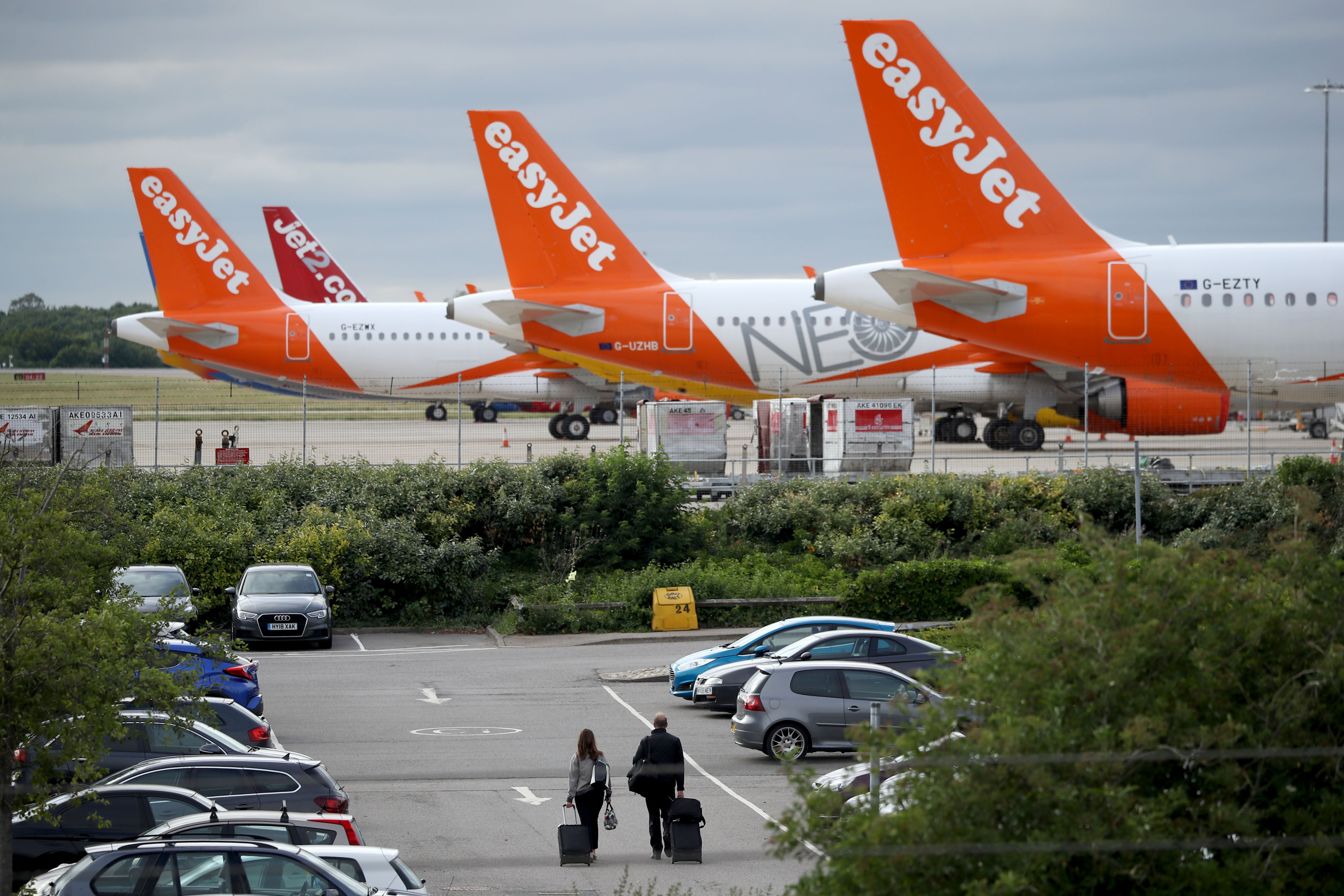Could your summer holiday be hit by strikes? These are the current odds
Travellers face a range of disruption, from more UK rail strikes to French air-traffic controller walk-outs – Simon Calder assesses the risks and gives his expert view


The one certainty of travel this summer: holidaymakers will be disrupted by strikes.
Travel depends on many individual groups of workers cooperating to deliver passengers to their destinations and enabling them to enjoy holidays. Because these functions are interlocking, trade unions have significant power to cause a lot of disruption through a relatively small number of workers going on strike.
The most extreme example: French air-traffic controllers, who normally handle many thousands of flights each day to, from and over France. But many other disputes potentially stand between you and your well-deserved and much-anticipated holiday – including the never-ending rail strikes, which could hit your journey to the airport or to a seaside resort.
For each of these possible threats, I have given my estimate of the percentage chance of it going ahead as well as a ‘Degree of Disruption’ score, from 0 to 10, for the effects.
UK: Rail strikes
We are now in the third summer of strikes by members of the train drivers’ union, Aslef. Industrial action in the dispute over pay and working arrangements began in July 2022. The union is demanding a no-strings pay award, but rail firms – directed by ministers – say any increase is contingent on radical reforms to working practices in order to reduce public subsidies.
Strikes have taken place every four to six weeks in the past 22 months.
While an olive branch has been extended by the Rail Delivery Group, representing train operators, inviting the union to informal talks, there seems no obvious solution in sight under the current government. More “rolling strikes”, targeting a different area of the country each day, seem likely.
Chance of strikes this summer: 90 per cent
Degree of disruption: 9 – thousands of trains will be cancelled on each day of a walk-out.
UK: EasyJet pilots’ dispute
“Summer of travel hell sparked by strike action after easyJet pilots reject £200,000 pay deal.” So reads one headline about the prospects for Britain’s biggest budget airline in the next few months, after an offer from easyJet was rejected by pilots belonging to the British Airline Pilots’ Association (Balpa).
But don’t panic if you are one of the millions with a booking on easyJet this summer. The airline says: “We are disappointed that the pilot pay deal was narrowly rejected. We remain in constructive dialogue with Balpa and no strike action is planned.”
Chance of strikes this summer: 1 per cent
Degree of disruption: 7 – while the UK is the main area of operations for easyJet, a significant proportion of its flights to and from British airports are operated by easyJet Europe and would be unaffected by a strike by UK-based pilots.

France: Air-traffic control strikes
French air-traffic controllers can wield more power than any other group of workers in terms of the disruption that a walk-out can cause. When they walk out, hundreds of “overflights” through French airspace – such as Scotland to Italy or England to Spain – are typically cancelled, as well as flights to and from France. Many more flights are delayed as they wait for slots.
Les contrôleurs aériens walked out repeatedly in 2023, and have already flexed their muscles with “the strike that never was” in late April.
“There’s some improvement in air-traffic control this summer,” says Eddie Wilson. He is the man with the trickiest job in travel: running Ryanair DAC, the main operation of Europe’s biggest budget airline.
At the root of the dispute is opposition to the restructuring of air-traffic navigation services, which many in aviation believe is essential to handle growing numbers of flights. Any changes to rosters are likely to be dependent on substantial pay increases before they are agreed.
Chance of strikes this summer: 70 per cent
Degree of disruption: 8
France: Paris Olympics transport strikes
Historically, many groups of transport workers see the Olympics as a good occasion to press their demands as the organisers – and government – battle to put on a good show. Transport workers belonging to the CGT-RATP union, devoted to the Métro, tram and bus services in Paris, are contemplating strikes – though new legislation is designed to ban strikes at key times, including the Games from 26 July to 11 August.
Chance of strikes this summer: 10 per cent
Degree of disruption: 3 – numbers attending the Olympics are expected to be very low.
Italy: Transport strikes
These are happening all the time in Italy, particularly in city transport, the railways and at airports. Most are short duration, as little as four hours. The next strike planned for Sunday 19 May on the railways is likely to go ahead and cause widespread problems, while taxi drivers plan a nationwide strike two days later in a dispute over issuing more taxi licences.
Chance of strikes this summer: 100 per cent.
Degree of disruption: 1-10 – depending on who exactly is striking and for how long.
Germany: Aviation strikes
Lufthansa, the national airline, appears to have settled its differences with pilots and cabin crew, but airport workers occasionally walk out and cause cancellations.
Chance of strikes this summer: 50 per cent.
Degree of disruption: 3 – assuming it is airport workers, rather than airline staff.
Germany: Rail strikes
Deutsche Bahn, the national train operator, is suffering extreme reliability problems ahead of the Euro 2024 football championships, held across Germany from 14 June to 14 July. Frequent short-notice strikes make trains even more unpredictable.
Chance of strikes this summer: 60 per cent.
Degree of disruption: 8.
Subscribe to Independent Premium to bookmark this article
Want to bookmark your favourite articles and stories to read or reference later? Start your Independent Premium subscription today.

Join our commenting forum
Join thought-provoking conversations, follow other Independent readers and see their replies
Comments